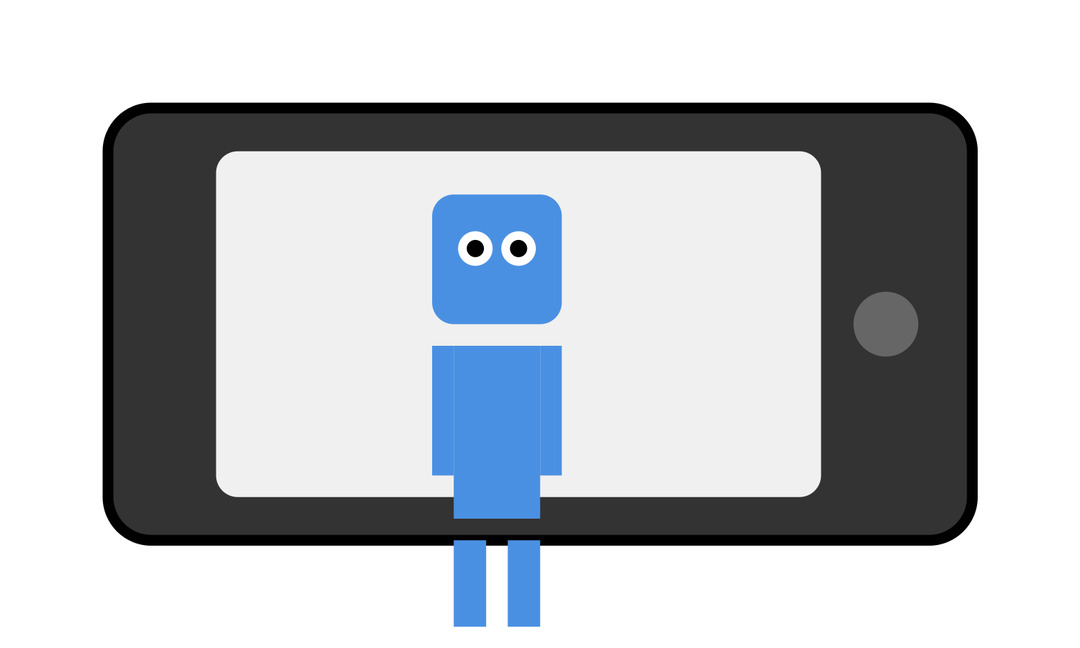Agents of Change: How AI Agents Will Reshape Work and Life
Imagining the Near Future with Digital Assistants By Our Side
You Will
Way back in 1993, AT&T aired a series of ads imagining the future of technology. In one of them, the narrator asks “Have you ever had an assistant that lived in your computer?” In this ad, a woman is seen in the background with a cup of coffee sitting down on her couch. In the foreground sits a computer. On the screen we see a cartoon of a dog which is talking to her. “I’m working on getting those concert tickets for you,” the dog says. “Good boy,” she responds, sipping her coffee. The ad finishes with the narrator saying “You will.”

Now, over 30 years later, the dawn of the computer assistant is here. Artificial Intelligence has matured to the point where computers can understand spoken language, interpret its meaning and context, generate responses, and take action on their own. A new term has been coined for these assistants, AI Agents. Let’s take a big picture view of what AI Agents are and how they are poised to reshape our future.
What is an AI Agent?
An AI Agent is a piece of software that interacts with humans in their own language to accomplish some sort of automation. Using Large Language Models and Natural Language Processing along with advanced algorithms, superior processing speeds, and the large data stores available today, AI is poised to revolutionize how we talk to computers.
How Does It Work?
An AI Agent works by using two key technologies: Large Language Models (LLMs) and Natural Language Processing (NLP). Think of an LLM like a massive library of words and conversations that the computer has learned from. It’s as if the computer has read millions of books, articles, and websites, allowing it to understand how humans actually communicate. Natural Language Processing is like the computer’s ability to translate human speech into something it can understand – turning your casual conversation into a set of clear instructions. Together, these technologies allow the AI to understand the nuance and context of what you’re saying, not just the literal words. It has learned a deeper level of understanding of how humans communicate with each other.
AI Agents: The Next Step
The goal of any AI Agent, in the end, is to automate some task that humans no longer want to do themselves. Computers have come a long way in the last 50 years in automating much of the stuff we do. Let’s take a few examples and see where it’s headed:
Personal Banking
Not so long ago you would receive a physical paycheck each Friday, and had to go stand in line (before the bank closed) to deposit it into your account, and get your balance. Then, ATM machines were invented, and you could deposit it at your convenience. With automatic depositing, your money went straight into your account. Now, with smartphones, you can open your bank app with your fingerprint, and see your bank balance any time you want. What’s Next: You’ll be driving down the freeway and say to your agent, who let’s say you named Pixel, “Hey Pixel, did I receive my paycheck yet? What’s my balance?” The AI Agent will understand what you want, securely interact with the bank’s system to fetch your balance and the latest work deposit, and talk back to you “Yes, you received your latest deposit from work this morning. Your balance is now five thousand twenty-three dollars.”
Healthcare
Much of healthcare has already been automated. Doctor’s offices no longer have back rooms stuffed to the brim with patient files. Every interaction is now stored on some database somewhere. Hospitals, Medical Groups, and Health Insurance companies have “patient portals” where patients can log in, see their personal history of doctor visits, test results, prescriptions, and make and change appointments. While it’s come a long way, there is much more room for technology to improve the patient experience. Disparate systems from different entities still don’t communicate with each other very well, making it necessary for patients to log into separate systems. For example, you have a foot problem, and your primary physician sends you to see a podiatrist. When you get to his office, you are given an iPad and told to fill out all the forms on it, which is pages and pages of questions, basically your entire medical history. What’s Next: All of your medical history is stored securely by your AI Agent. You ask your agent to book an appointment with the podiatrist’s office, and authorize the transfer of your medical data to them. “Hey Pixel, book me an appointment with the podiatrist, and send them my medical history file.”
Travel
Travel agents used to be a thing. You went into their office and told them you wanted help in planning a trip to Paris. You told them your schedule, budget, and what you wanted to see and do. The agent would research flights, hotels, and activities and, for a fee, plan your trip for you. Then, to eliminate the agent’s fee, people started using the internet to book their own trips. What’s next: “Hey Pixel, I’m thinking about going to Paris for a week around my birthday. My budget is about 2 thousand dollars. Can you send some suggestions for flights, hotels and activities?” The AI Agent already has learned what you want from previous trips, knows that you prefer a window seat, small B&Bs, and love historical walking tours. It scours the internet for flights and deals. It compiles a list of suggestions and sends a summary to your inbox. When you decide, you can order Pixel to go ahead and book the overnight flight from New York, the B&B in the Marais, and the walking tour of the Left Bank, to schedule the dog-sitter, a transport service to and from the airport, and even put an out-of-office message in your work email. (Sorry, but the AI Agent can’t pack your bags for you).
Organizing
In the ancient days before mobile devices, there once was a thing called a personal organizer. It was a small notebook that people carried around with them. It had phone numbers, a calendar, notes, everything a person needed to stay organized. Some people had them so stuffed with sticky notes, business cards, reminders to do stuff that they had rubber bands around them to keep everything inside.

Now, all this is organized using a plethora of apps on our laptop, tablet and smartphone. Some effort has been made to coordinate things between the apps. Some events that you sign up for are automatically sent to your Google calendar, for example. What’s Next: Your AI Agent will keep your calendar for you. It will know how to talk to other system’s and your contact’s calendars, to make appointments and reservations, to schedule a group meeting, or just to block out some private time. Just like a personal administrative assistant, it will greet you in the morning and tell you what’s on tap for the day. It will tell you about a traffic jam on I-91, and suggest a different route to work. As you think of something in the car, you can say “Hey, Pixel. Tell me what birthdays are this month and let’s talk about some gift suggestions.”
Work
AI Agents are already transforming the workplace. Much of data entry, transformation, and system interaction has already been automated using Robotic Process Automation. As-Is processes are analyzed and workflows are created to automate them. Now, RPA vendors are racing to incorporate AI Agents into their automation platforms. AI will be a no-code layer between the human and the automation. What’s Next: An AI Agent will be told to “create a workflow to do x, y and z”, and will create the workflow itself, even handling the writing of code. It will have the capability of optimizing itself, and look for flaws and errors. It will be customizable and adaptable, asking humans for guidance when it needs to. The days of programmers writing out every line of code are fast disappearing.
Challenges and Opportunities
We stand at the precipice of a new wave of technology, one that will transform the way we interact with computers, both at work and in our personal lives. Within the next decade, smartphones will become even smarter, and will gradually increase their capacity to understand our commands to do more and more for us. AI Agents will need to be secure and private, able to seamlessly transition across our various devices and platforms. Systems integration will be increasingly important, as healthcare, banking, travel and other businesses will need to be able to interface not with us, but with our personal Agent acting on our behalf. Legal questions arise as to identity theft, and end-of-life concerns. What happens to your agent when you die? Does the government have access? As with every advance in technology, security and privacy issues will be paramount and solutions must be invented to meet the challenge. The challenge and opportunities of this new era abound, for those willing to adapt to it.
Have you ever had a personal representative that lived in your computer?
You will.
